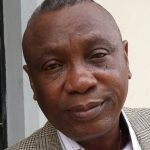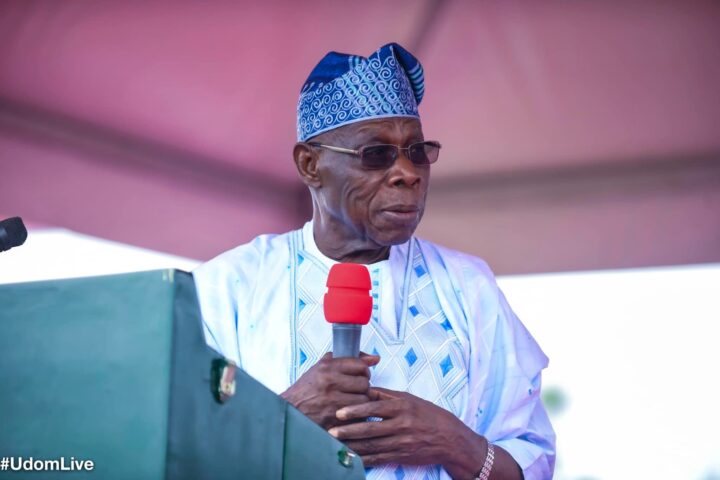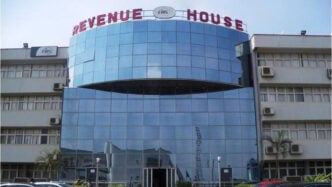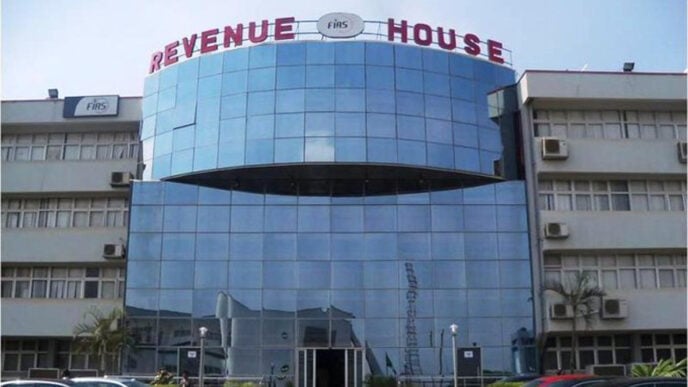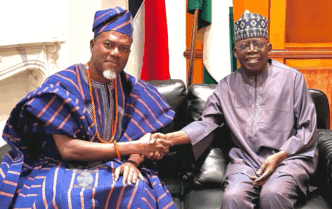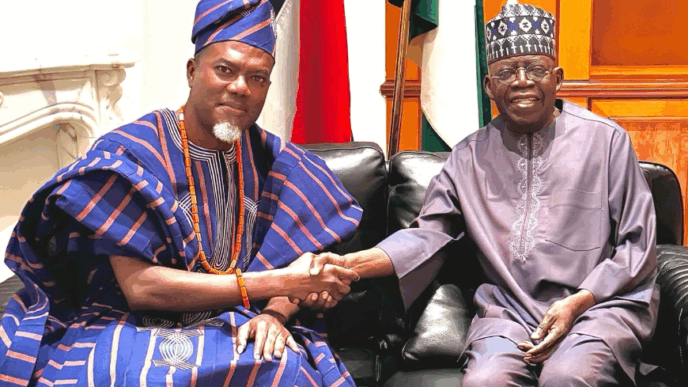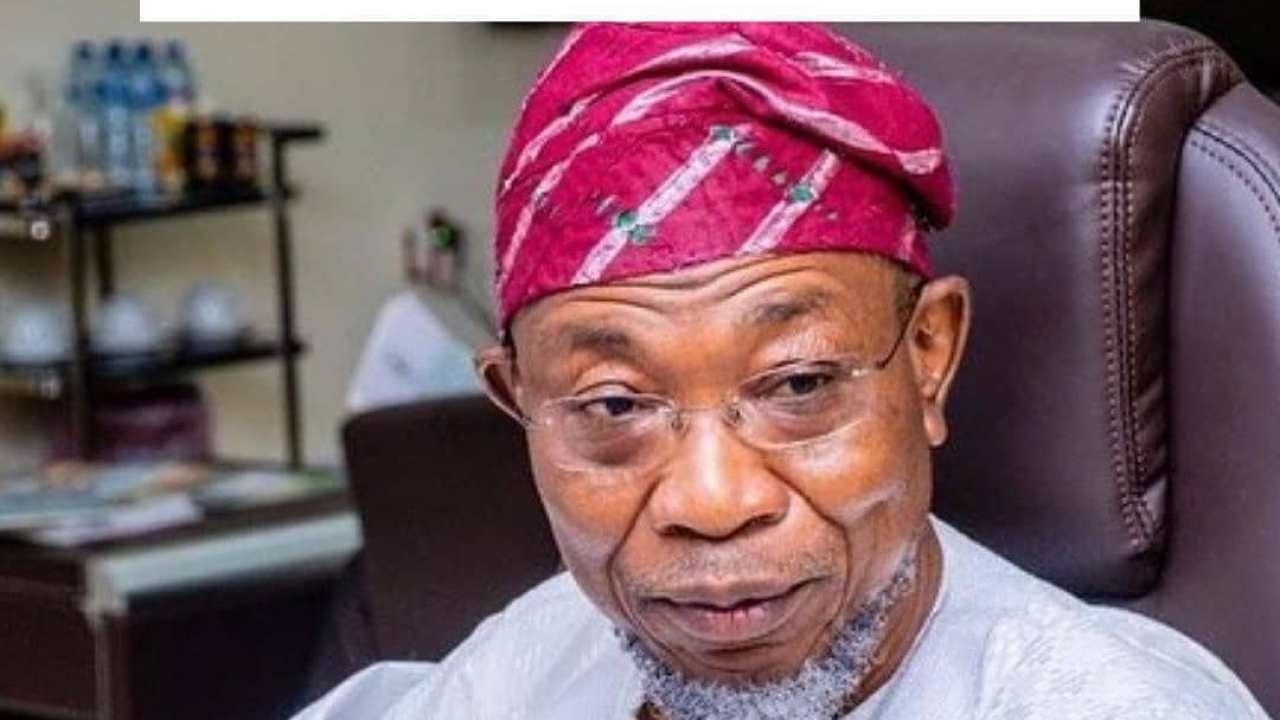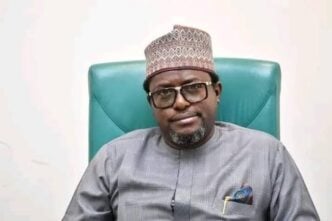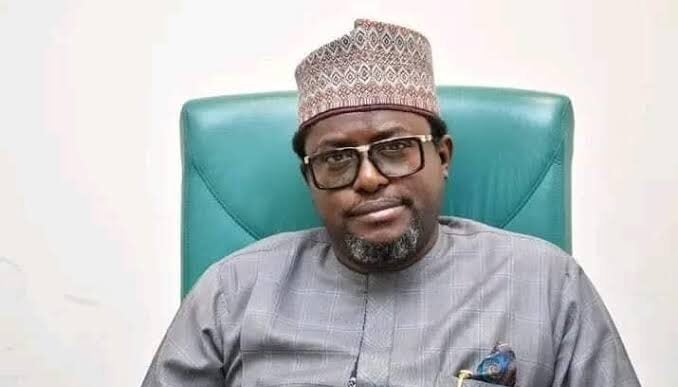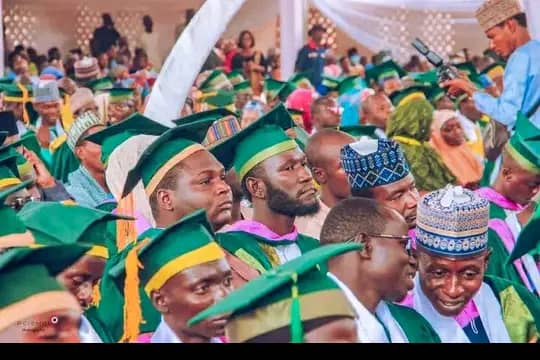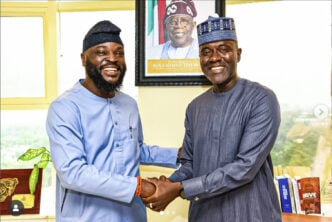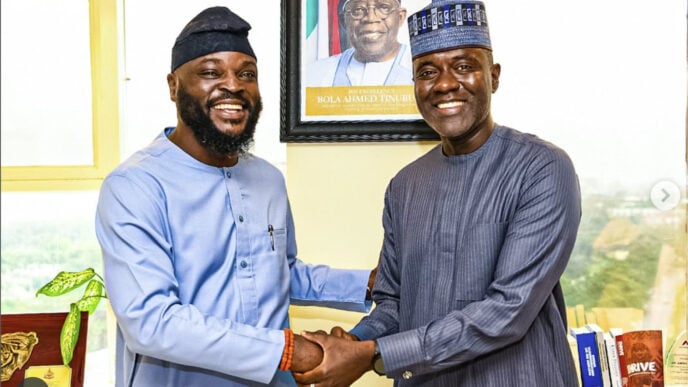Olusegun Obasanjo
Shortly after being sworn in as President on May 29,1999, President Olusegun Obasanjo (88) GCFR, delayed signing the Proclamation of the first sitting of the National Assembly. The delay lasted a few days during which there was suspense.
Subsection 3 of Section 64 of the 1999 Constitution states that “subject to the provisions of this Constitution, the person elected as the President shall have power to issue a proclamation for the holding of the first session of the National Assembly immediately after his being sworn in, or for its dissolution as provided in this section”.
The delay in signing the proclamation by President Obasanjo GCFR was deliberate.
The then ruling party PDP zoned the SENATE PRESIDENCY to South East. President Obasanjo wanted his choice to be the Senate President. His choice was Senator Evan Enwerem. The choice of the majority of the PDP Senators was Senator Ike Omar Sanda Nwachukwu (84), who represented Abia North. Senator Nwachukwu was a retired general in the Army, a Minister of Foreign Affairs from December 1987 to December 1989 and also the former Military Governor of Imo state from January 1984 to August 1985. General Nwachukwu’s mother was a Princess from the Katsina Royal family.
President Obasanjo’s vice at that time, Turakin Adamawa, Alhaji Atiku Abubakar GCON, wanted Dr. Chuba Wilberforce Okadigbo (17 December 1941 – 25 September 2003). Dr. Okadigbo was a member of the Peoples Democratic Movement (PDM) founded by Major General Shehu Musa Yar’adua (5 March 1943 – 8 December 1997), of which Alhaji Atiku Abubakar belonged. President Obasanjo reasoned that a retired general could not be President and another retired general be elected as Senate President, hence he decided on Senator Enwerem. It was at that time that the President appointed the Managing Director of Atoto Press in Ilorin, Major General(rtd.) Abdullahi Mohammed (86) as his Chief of Staff. It would have been an overkill for a retired General to be President, a retired General to be Chief of Staff and a retired General to be the Senate President.
Advertisement
Major General (rtd.) Abdullahi Mohammed was National Security Adviser to General Abdusalami Abubakar (83) GCFR from 1998 to 1999; Director General of the National Security Organisation from 1976 to 1979; and Governor of Benue-Plateau State, Nigeria, from July 1975 to February 1976 during the military regime of General Murtala Mohammed.
In July 1975, Major General (rtd.) Mohammed was Director of Military Intelligence, and formed and executed the 1975 coup d’état plan with other officers, including Major General Shehu Musa Yar’Adua, Colonel Joseph Nanven Garba, Colonel Muhammadu Buhari and Colonel Ibrahim Taiwo, to depose General Yakubu Gowon (90) GCFR, after which they transferred power to General Murtala Ramat Muhammed GCFR (8 November 1938- 13 February 1976) as head of state. Immediately after the coup, he was appointed Governor of Benue/Plateau State.
At the time, President Obasanjo appointed General Mohammed as Chief of Staff, the PDP Senators had resolved that General Ike Nwachukwu was to be their Senate President. In fact, he was coasting home to victory and this did not augur well for the President. To halt Senator Nwachukwu’s victory, President Obasanjo delayed signing the Proclamation.
Advertisement
The matter was later resolved following the intervention of the Chairman of the party, Chief Solomon Daushep Lar (4 April 1933 – 9 October 2013) and the chairman of the Board of Trustees, Chief Sunday Bolorunduro Awoniyi, the Aro of Mopa, Kogi State (30 April 1932 – 28 November 2007). Eventually, Senator Nwachukwu stepped down and left the race only for Dr. Okadigbo and Senator Enwerem.
Chief Evan Enwerem (29 October 1935 – 2 August 2007) had earlier served as the governor of Imo state from 3 January 1992 – 17 November 1993.
With the support of President Obasanjo’s allies in the ruling party, plus support from two opposition parties, AD and ANPP, Senator Enwerem easily defeated Dr. Okadigbo with 66 votes to Okadigbo’s 43 votes.
Chief Evan Enwerem did not hold the post of President of the Nigerian Senate for very long. The Senate committee began investigating Senator Enwerem for allegations of corruption in 1999. The allegations against Senator Enwerem alleged that he falsified his name, and caused a controversy as to whether Senator Enwerem’s actual real name was Evan or Evans. Senator Enwerem was removed from office on 18 November 1999, in an ouster spearheaded by allies of Dr. Chuba Okadigbo. However, though removed as President of the Senate, Senator Enwerem remained a member of the Senate until 2003.
That delay in signing the Proclamation was the first exhibition of the supreme powers of the Nigerian President in the democratic setting.
The question of who is number two, number three or number four in the country could only be determined if the Nigerian President want it.
Advertisement
The Nigerian President is one of the most powerful in the world and the powers were conferred on him by the 1999 Constitution. Under the constitution, the President can do and undo and justify the execution of his orders. In fact, the Constitution is like giving the President a blank cheque. In addition, except during the regimes of former Presidents Umaru Musa Shar’adua and Goodluck Jonathan, the Nigerian President is the Minister of Petroleum.
Former President Olusegun Obasanjo made the justification in September 2002, while defending the power of the President, to make himself the Minister of Petroleum Resources. He cited that “Under Section 5 of the 1999 Constitution, the Executive powers of the Federation are vested in the President who may exercise same directly or through the Vice President, Ministers or officers in the public service of the Federation. It is apparent from the wordings of this section that it is within my discretion to exercise these powers directly or delegate same to certain functionaries.
In the same vein, Section 147(1) of the Constitution makes provision for such offices of the Ministers of the Government as may be established by the President. This clearly gives me the discretion over which office of Minister to establish. The Constitution does not specify the Ministries which I have to establish or the powers which I may delegate to Ministers.
It is therefore within my constitutional powers to choose not establish the office of the Minister of Petroleum Resources and directly exercise executive control over petroleum matters. It is immaterial that the office of Minister of Petroleum Resources is provided for in the Petroleum Act as the provisions of the Constitution take precedence over that of an existing law in the event of a conflict”.
Party supremacy is now fading and is gradually being replaced by cult loyalty to the President encouraged and sustained by the supreme Presidential powers and patronage.
The powers of the President were not that Supreme in 1979. At that time there was party supremacy. If you are in UPN, you dare not challenge Chief Obafemi Awolowo’s supremacy and the collective decision of the UPN even if you are a governor or Senator in 1979. The same with Dr. Nnamdi Azikiwe’s NPP, Alhaji Aminu Kano’s PRP and Alhaji Waziri Ibrahim’s GNPP. In the centre, there was the Monday caucus of the NPN, which was the highest decision-making body. The Monday caucus was always chaired by the Chairman of the party, Chief August Meredith Adisa Akinloye (August 19, 1916-18 September, 2007) with the secretary, Alhaji Uba Ahmed (1939-2012), President Shehu Usman Aliyu Shagari GCFR (25 February 1925-28 December 2018) and his vice, Dr. Alex Chukwuemeka Ekwueme GCON (21 October 1932 – 19 November 2017), always in attendance.
Advertisement
Always present at the caucus meeting were the Senate President, Dr. Joseph Wayas (21 May 1941 – 30 November 2021), the deputy speaker of the House of Representative then, Alhaji Ibrahim Kuta Idris (1October 1942-1 May 2008), because his boss, Chief Edwin Ume-Ezeoke (8 September 1935 – 1 August 2011), was not an NPN member and Alhaji Umaru Dikko (31 December 1936 – 1 July 2014), who represented the Council of Ministers.
Since 1999, the powers of the President have grown like an oak tree. The President not only controls the central government but also the party to the extent that he hires and fires his ruling party chairmen at random. The ruling party’s headquarters is now like a department of THE PRESIDENCY. We no longer hear of party’s convention, which used to be the annual pilgrimage of faithful party delegates where key party officers are elected. Emergency meetings of the governors with the President and those selected by the President, have now replaced the party’s annual conventions. This is a new development.
Section B of the Third Schedule of the 1999 Constitution affirms that the Council of State shall “advise the President” among other things, on the award of National Honours. I am not sure that the Council has been allowed to play that role of late. The President seems to be the Council of State now. What we are witnessing is the hawking of National Honours irrespective that there is an existing committee, a screening committee charged with that schedule. Incidentally, the current screening committee on National Honours was inaugurated on November 27 last year under the chairmanship of Justice Sidi Dauda Bage (69), the 17th Emir of Lafia in Nasarawa state, who is also a retired Justice of the Supreme Court. Other members of the screening committee are Mrs Farida Waziri, former chairman of the EFCC, Alhaji Muhammadu Jafar, Alhaji Bello Ison and Chief Inikio Dede. The Committee has been in existence since October 1963 under the National Honours Act Cap N 43 of the Federation. It was established by Sir Abubakar Tafawa Balewa (December 1912 – 15 January 1966), the first and only Prime Minister of Nigeria upon independence.
Another threat I have observed is the deployment of the military to quell civil matters.
On November 20, 1999, President Obasanjo authorized the deployment of military troops to Odi to quell riots without recourse to the National Assembly contrary to Section 217 (2) C of the 1999 Constitution which requires firstly for some conditions to be prescribed by an Act of the National Assembly for the use of the Military in that regard. He justified the invasion.
Advertisement
Between October 20 to 24, 2001, President Obasanjo, ordered the military invasion to Zaki-Biam in Benue state. The action was a surreptitious operation of the Nigerian army to avenge the killing of 19 soldiers, whose mutilated bodies were found on 12 October 2001, near some Tiv villages in Benue State. The action took place in villages including Gbeji, Vaase, Anyiin, Iorja, Ugba, Tse-Adoor, Sankera, Kyado and Zaki-Biam.
President Obasanjo justified the two invasions.
Advertisement
He replied “When the unfortunate incidents in Odi and Zaki-Biam escalated beyond the capacity of the Nigeria Police Force to control, I decided to deploy the Army to assist the Nigeria Police in restoring order as not only were properties being destroyed on a large scale, civilians and law enforcement agents were also being killed. In the case of Odi, four policemen a total of seven soldiers deployed there on law enforcement and peacekeeping duties were killed. The Governor of the State, who is also the Chief Security officer of the State, had reported his inability to contain the rapidly escalating lawless situation. It was only after these developments that additional troops were sent to restore law and order. No responsible Government will fold its hands and allow such a situation to continue unchecked. In authorizing the deployment of the Army to the affected areas, I was guided by the provisions of the Section 218 (1) of the 1999 Constitution and Section 8(1) of the Armed Forces Act No. 105 of 1993.
Section 218 (1) of the Constitution provides that “the powers of the President as the Commander-in-Chief of the Armed Forces include power to determine the operational use of the Armed Forces”. Likewise, Section 8(1) of the Armed Forces Act No. 105 of 1993 vests power in me “to determine the operational use of the Armed Forces.”
Advertisement
Subsection (3) of this Section defines “operational use of the Armed Forces” to include the operational use of the Armed Forces in Nigeria for the purpose of maintaining and securing public safety and public order. I am also empowered by Subsection (2) to issue general or special directives to delegate responsibility for the day-to-day operational use of the Armed Forces to the Chief of Defence Staff and the respective Service Chiefs. In the exercise of these powers, I am nor required either by the Constitution or the Armed Forces Act No. 105 of 1993 to have recourse to the National Assembly. This allegation is, with due respect, to totally misconceived and the use of the term “massacre” is particularly offensive and inciting.
In addition, I have power under Section 217 (2)(c) of the Constitution to deploy troops in aid of civil authorities. I deciding whether or not to do so I need not consult the National Assembly. The National Assembly is not required to prescribe conditions for the operational use of the Armed Forces under Section 8 (1,2, &3) of the Armed Forces Act No. 105 of 1993 (now deemed to be an Act of the National Assembly). Once I have exercised any power to deploy troops, those troops are to be governed in their conduct by conditions laid down by the National Assembly.
In my judgment I have ample powers under the existing law to act as I did. In any event, under our Constitution both the Executive and the National Assembly can initiate necessary bills.
The necessity for troops in aid of civil authority arises only after the police have failed. Such situations demand urgent and decisive action to maintain Law and Order and save lives and property.
The National Assembly has neither enacted a new law nor amended the existing law prescribing any such conditions. Similarly, the Armed Forces Act’ No. 105 of 1993, which is an existing Law and deemed to be an Act of the National Assembly within the contemplation of Section 315 of the Constitution, is what we have as guide on these conditions. And, as the President of the nation, I am under the obligation to ensure the security and safety: of lives and property of the citizenry in any part of the nation.
Undoubtedly, it was not the intention of the framers of the Constitution that a Section of the country that is engulfed in crisis be allowed to degenerate and be destroyed only because the National Assembly is yet to enact an Act prescribing conditions under which the Armed Forces would operate when called upon to act in aid of civil authorities.
And if the National Assembly has to enact laws for each situation the affected areas would have been completely destroyed before the Law is enacted. The deployment of soldiers to Odi and Zaki-Biam where nineteen soldiers were decapitated with the loss of many civilians’ lives was for the purpose of assisting police to restore order. This was done within my constitutional powers and in absolute good faith with the aim of containing the worsening situation in the areas in the interest of security and to maintain law and order and save lives and property”.
On May 18, 2004, President Olusegun Obasanjo GCFR suspended the Plateau state governor, Joshua Chibi Dariye (69) from office following religious crisis in that state. He also dissolved the Plateau state House of Assembly. He immediately appointed the former Chief of Army Staff, General (rtd.) Muhammed Chris Alli (25 December, 1944 – 19 November, 2023) as Administrator of Plateau state. The suspension lasted till November 18, 2004.
On the directive of my then boss, the Secretary to the Government of the Federation, Chief Ufott Ekaette (1939 -25 September 2019) CFR, I personally handed over in Jos, the letter conveying his resumption to office, on Governor Dariye.
On October 19, 2006, President Olusegun Obasanjo declared state of emergency on Ekiti state for six months. He suspended the then Governor of the state, Chief Peter Ayodele Fayose (64). He equally suspended the State House of Assembly and then appointed Major General (rtd.) Adetunji Idowu Olurin (3 December, 1944 – 20 August 2021) as Administrator of the state. The suspension lasted till 27th April 2007.
On May 14, 2013, President Goodluck Jonathan (67) GCFR, declared a state of emergency in Adamawa, Borno and Yobe states without getting approval from the National Assembly. The President made the declaration during a nationwide broadcast.
In imposing the state of emergency, President Jonathan wielded extra-Ordinary measures by invoking Section 305, Sub section 1 of the 1999 constitution of Nigeria.
However, President Jonathan GCFR, stated that regardless of the state of emergency imposed, the governors in the three states would remain in office.
In his broadcast, the President declared “Since I returned to the country after cutting short my visit to South Africa and aborting a planned state visit to Namibia, I have received detailed briefings from our security agencies. These briefings indicate that what we are facing is not just militancy or criminality, but a rebellion and insurgency by terrorist groups which pose a very serious threat to national unity and territorial integrity. Already, some northern parts of Borno state have been taken over by groups whose allegiance is to different flags and ideologies.
These terrorists and insurgents seem determined to establish control and authority over parts of our beloved nation and to progressively overwhelm the rest of the country. In many places, they have destroyed the Nigerian flag and other symbols of state authority and in their place, hoisted strange flags suggesting the exercise of alternative sovereignty.
They have attacked government buildings and facilities. They have murdered innocent citizens and state officials. They have set houses ablaze, and taken women and children as hostages. These actions amount to a declaration of war and a deliberate attempt to undermine the authority of the Nigerian state and threaten her territorial integrity. As a responsible government, we will not tolerate this. Previously, we adopted a multi-track approach to the resolution of this problem through actions which included persuasion, dialogue and widespread consultation with the political, religious and community leaders in the affected states.
We exercised restraint to allow for all efforts by both State Governors and well-meaning Nigerians to stop the repeated cases of mindless violence. Yet, the insurgents and terrorists seek to prevent government from fulfilling its constitutional obligations to the people as they pursue their fanatical agenda of mayhem, mass murder, division and separatism.
While the efforts at persuasion and dialogue will continue, let me reiterate that we have a sacred duty to ensure the security and well-being of all our people and protect the sovereign integrity of our country. Therefore, we shall, on no account, shy away from doing whatever becomes necessary to provide the fullest possible security for the citizens of this country in any part of the country they choose to reside. We have a duty to stand firm against those who threaten the sovereign integrity of the Nigerian state. Our will is strong, because our faith lies in the indivisibility of Nigeria.
Following recent developments in the affected states, it has become necessary for Government to take extraordinary measures to restore normalcy. After wide consultations, and in exercise of the powers conferred on me by the provisions of Section 305, sub-section 1 of the Constitution of the Federal Republic of Nigeria 1999 as amended, I hereby declare a State of Emergency in Borno, Yobe and Adamawa states.
Accordingly, the Chief of Defence Staff has been directed to immediately deploy more troops to these states for more effective internal security operations. The troops and other security agencies involved in these operations have orders to take all necessary action, within the ambit of their rules of engagement, to put an end to the impunity of insurgents and terrorists. This will include the authority to arrest and detain suspects, the taking of possession and control of any building or structure used for terrorist purposes, the lock-down of any area of terrorist operation, the conduct of searches, and the apprehension of persons in illegal possession of weapons”.
On March 18, this year, President Bola Ahmed Tinubu GCFR, declared a state of emergency in oil rich Rivers State and suspended the duly elected governor, Amaopusenibo Siminalayi Fubara (50), before notifying the National Assembly. He then appointed Vice Admiral(rtd.) Ibok-Ete Ekwe Ibas, the sole administrator.
Vice Admiral(rtd.) Ibok-Ete Ekwe Ibas was the 22nd Chief of the Naval Staff (CNS) of the Nigerian Navy from 2015 to 2021.
Vice Admiral(rtd.) Ibas was born in Nko, Cross River State, South South Nigeria. He enlisted into the Nigerian Defence Academy as a member of 26 Regular Course on 20 June 1979 and was commissioned sub-lieutenant on 1 January 1983. He began his primary education at Nko Primary School, Nko, in 1966 and completed at Big Qua Primary School, Calabar in 1971. He then proceeded to the Hope Waddell Training Institute, Calabar from 1972 to 1976. Between 1977 and 1979, he attended the School of Basic Studies Ogoja before proceeding to the Nigerian Defence Academy in 1979.
President Tinubu GCFR also dissolved the Rivers State House of Assembly. The President justified his actions with the provisions of the Constitution, by invoking Section 305(5) of the 1999 Constitution as amended.
These actions by the three Nigerian Presidents and many more by Presidents Umaru Yar’adua GCFR (August 16, 1951- May 5, 2010) and Muhammadu Buhari GCFR (17 December 1942 – 13 July 2025), certainly defined the supreme powers of the Nigerian President.
In 1979, we adopted the Presidential System of Government. With the adoption, we created a monster. Although we have seen a President lose an election by accepting his fate. Other future Presidential losers may not ply that route. They may do all within their Presidential powers either to rig to win by all means or remain in power at all costs, especially Presidents who love power.
It is often said that power brings envy and jealousy. The idea is that when someone attains a position of power, it can trigger feelings of envy and jealousy on those who do not have the power or who perceive themselves as deserving it. This is a common human reaction rooted in a sense of competition and social comparison. The supreme powers of the President of Nigeria are bound to bring envy, grudge, mistrust, jealousy and suspicion.
But we must all resolve to check the enormous powers of the Nigerian President. Any future Constitutional amendment must take into account the reduction in the powers of the President.
The saying “power corrupts, and absolute power corrupts absolutely” suggests that those in positions of authority are prone to abuse of power, with absolute power leading to complete moral decay. This idea, famously attributed to Lord Acton, is supported by historical and psychological evidence.
While the saying highlights the potential for corruption within those with power, research also indicates that lack of power can also lead to negative behaviors, such as resentment and a desire to dominate. Additionally, personality traits and relationship orientations play a role in how individuals wield power, with some demonstrating more self-serving behaviors while others exhibit greater generosity.
If we are to go by the Constitution, the Nigeria President is the sole administrator of the country.
The President alone by the provisions of the Constitution has the power to appoint Ministers, Judges, ambassadors, board members in the Central Government like Independent National Electoral Commission (INEC), National Population Commission (NPC), The Nigerian National Petroleum Company (NNPC) Limited (NNPC) and others. The National Economic Council and the Council of State can only advise the President. He can decide to accept or reject their advice. The powers of the President can be abused as human.
Concentrating power in one person or entity carries significant risks, potentially leading to tyranny, corruption, and a decline in individual liberties. This concentration of power can hinder the effectiveness of checks and balances within a system of governance, allowing for the unchecked exercise of authority and potentially leading to the suppression of dissent.
The framers of our Constitution knew something crucial about human nature: no one is perfect, and even those with good intentions can be tempted by power. With this in mind, they designed a government that protects against any one person—or group—getting too much control. By building a system of checks and balances, they created a structure to keep power balanced and tyranny at bay. This core principle remains vital today for anyone who values liberty and wants to keep power accountable. Our situation is even worse in that we have a rubber stamp National Assembly.
There is the need to refer to the report of the sub-committee on the Executive and Legislature of the Constitution Drafting Committee of 1975. The reports defined on how the powers of the Nigerian President could be operated. The sub-committee was headed by Alhaji F.G. Razak, the father of the present Governor of Kwara state. Other members of the sub-committee were Dr. E. Eleazu, Alhaji Sule Gaya, Dr. I. Ahmed, Dr. Kole Abayomi, Mr. F. Okunnu, Dr. G.A. Odenigwe, Mr. S.G. Ikoku, Alhaji Shehu Malami and Dr. K.O. Mbadiwe.
Their report is as follows–“In the deliberations of the Sub-Committee, what has been uppermost in our minds is how to provide for an effective leadership that expresses our aspirations for national unity without at the same time building up a Leviathan whose power may be difficult to curb. The Executive of a state is not just the single individual who is the head of state, it includes a host of aides and auxiliaries, executive assistants and administrators whose day-to-day tasks result in the many activities of the government. Admittedly, the report of the sub-committee on National Objectives and Public Accountability and the debate on it, have set the tone and affected our own deliberations.
Several papers were presented by members of the sub-committee; we were also able to glean as much as possible from the memoranda submitted to the main Committee in so far as they relate to our terms of reference. By and large, we have been very much influenced by the experience of political leadership in this country— both civilian and military; the need to de-commercialised politics (or to undecorate politics as one member put it); the need to balance the stakes of politics so that each section of this country will come to feel a sense of belonging to a great nation; the need to develop an approach of consensus to politics and finally the need to accentuate our national inclination towards a bargaining approach to decision- making rather than regarding politics as a game of the winner-take-all. Probably, more than any other aspect of our recommendation, two points need to be touched upon because they relate to one another and go to the whole basis of the exercise of executive authority.
The first is our recommendation for a single Chief Executive who is both the Head of State and Head of Government. The sub-committee compared various models—the Presidential Executive, the Parliamentary Executive and even hybrid types, e.g. the Dual Executive where specified functions are assigned to the President and the Prime Minister separately.
But the sub-committee considered that given the fact that a Chief Executive must perform and be seen as performing the following functions:
(a) That of being a symbol of national unity, honour and prestige;
(b) Being a national figure—a political leader in his own right; and
(c) That of being an able executive—someone who can give leadership and a sense of direction to the country.
It was imperative that Nigeria adopt the single Executive type. We also considered a suggestion that the Vice-President should be equipped to provide a political counterpoise to the President, but felt that this, like the dual executive could create a paralysis in the executive structure itself. The relations of the President of the Republic to that of his Vice-President should be one of pilot and co-pilot, rather than the latter being a counterpoise to the former. The psychological position of the single Chief Executive is stronger in that it gives an image of strength, unity, single-mindedness and clear locus of responsibility:
The second point is that of the Rotational principle embodied in the mode of election of the kind of President recommended. Here again, the question that bordered the sub-committee was how the kind of national figure which we envisaged could emerge. We were very much influenced by the debate on national objectives and public accountability and the need to avoid concentration of power in the hands of a few, or a sectional group; the need to replace ethnic with national politics, etc. In short, it is the intention of the sub-committee that anybody who wants to be a President must strive to become a national figure, and the method of his election is meant to provide him with a means of “nationalising” himself as well as test his standing a national figure”.
The main objective of the President of Nigeria is to bring about the desired National unity and not to display Supreme powers as contained in the Constitution.
Views expressed by contributors are strictly personal and not of TheCable.
